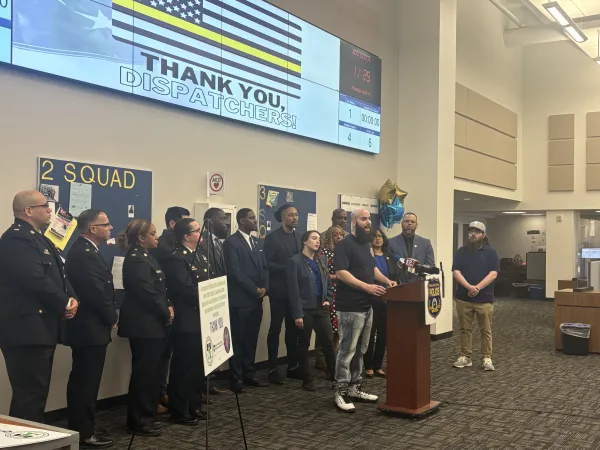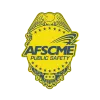Let’s thank emergency dispatchers for saving lives

We thank 911 dispatchers, emergency phone operators and other emergency telecommunications workers for saving lives every day.
As AFSCME President Lee Saunders said, they “run command centers around the clock, fielding thousands of calls, helping first responders get where they need to go and keeping people calm in the face of life-threatening emergencies.”
During National Public Safety Telecommunicators Week, we honor these front-line professionals for keeping America safe. And we pledge to help them thrive.
Emergency dispatchers — like other public safety professionals — face a higher level of job-related mental stress than the rest of the population. Some even develop post-traumatic stress disorder (PTSD).
But 911 operators and other emergency dispatchers often can’t access the same mental health benefits as police officers, fire fighters and other first responders. Emergency dispatchers deserve to be treated on par with their peers.
That’s what 911 operators in Philadelphia are fighting for through their union, AFSCME District Council 33.
They held a press conference on Monday to call on the state Senate to pass a bill approved by the state House. HB453 would reclassify them as first responders. This would allow 911 operators to get mental health and other benefits they deserve. The co-sponsors of the House bill also joined them to show their support. (Television news clips are here, here, here and here).
“Citizens call 911 when it is an emergency, when they have no other options and they need help,” said John McGinnis, a police dispatcher. “One of the hardest calls they ever have to make is part of my job every day, and I am proud of the work I do. But we need help to make sure that we are at our best and able to handle each call calmly, with professionalism and with empathy. Because that is what our neighbors deserve.”

Mathew Schoeniger, a fire communications dispatcher, said the job takes a toll on dispatchers who listen to the “worst moments of people’s lives.”
“We are coach, mentor, psychologist, miracle worker, social worker, and we are dedicated public service employees,” Schoeniger said. “But we cannot be any of those unless we can take care of ourselves.”
There’s bipartisan support for bills like HB453.
In New York, the legislature passed a measure expanding PTSD benefits to all public safety professionals, including 911 operators. Gov. Kathy Hochul signed it into law last December.
In Congress, Pennsylvania Rep. Brian Fitzpatrick, a Republican, is co-sponsoring the 911 Supporting Accurate Views of Emergency Services Act (SAVES) with California Rep. Norma J. Torres, a Democrat.
Meanwhile, emergency responders around the country face another threat from Washington — budget cuts. AFSCME members are fighting to block them through our Get Organized campaign.
“Congress is pursuing damaging budget cuts that would slash federal funding to states, cities and towns, leaving 911 dispatchers with fewer resources and staff to respond to emergencies,” Saunders said. “If this extremist plan passes, it could mean longer wait times — or worse, unanswered calls from the public — in situations where every second counts.”
He has written a column that lays out how AFSCME members can fight back.
“AFSCME members nationwide are getting organized to protect federal funding for public safety and stand in solidarity with our nation’s 911 dispatchers,” Saunders said. “We're sending a clear message to Congress: We won’t allow you to gut public services to pay for billionaire tax cuts.”
